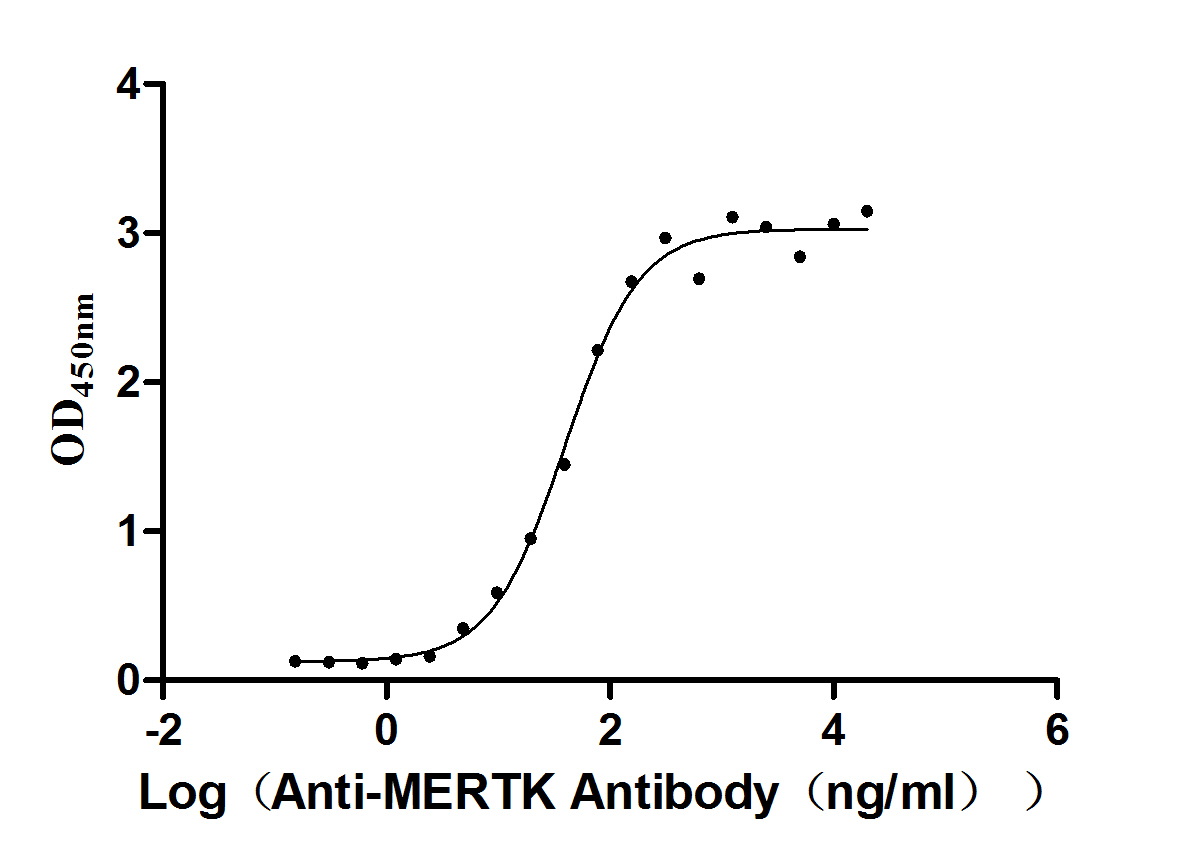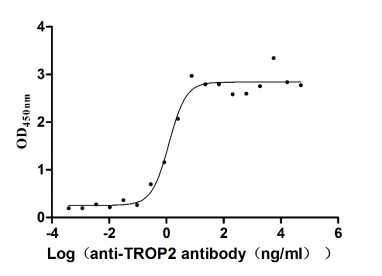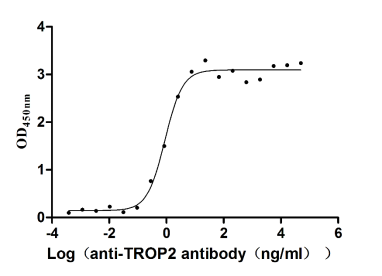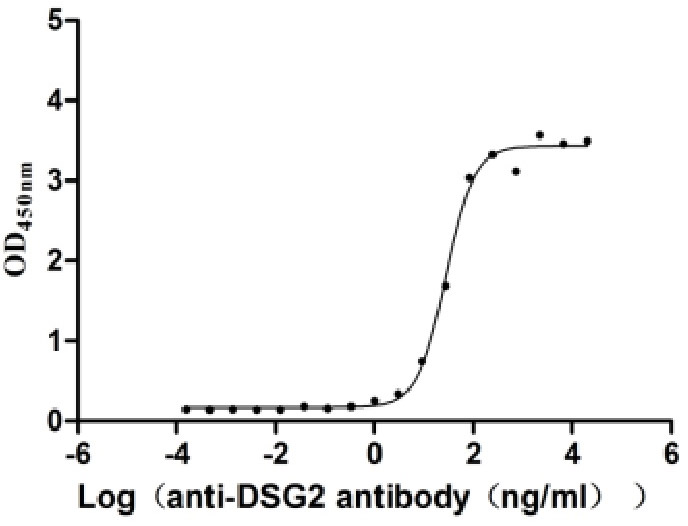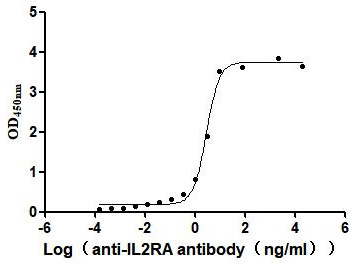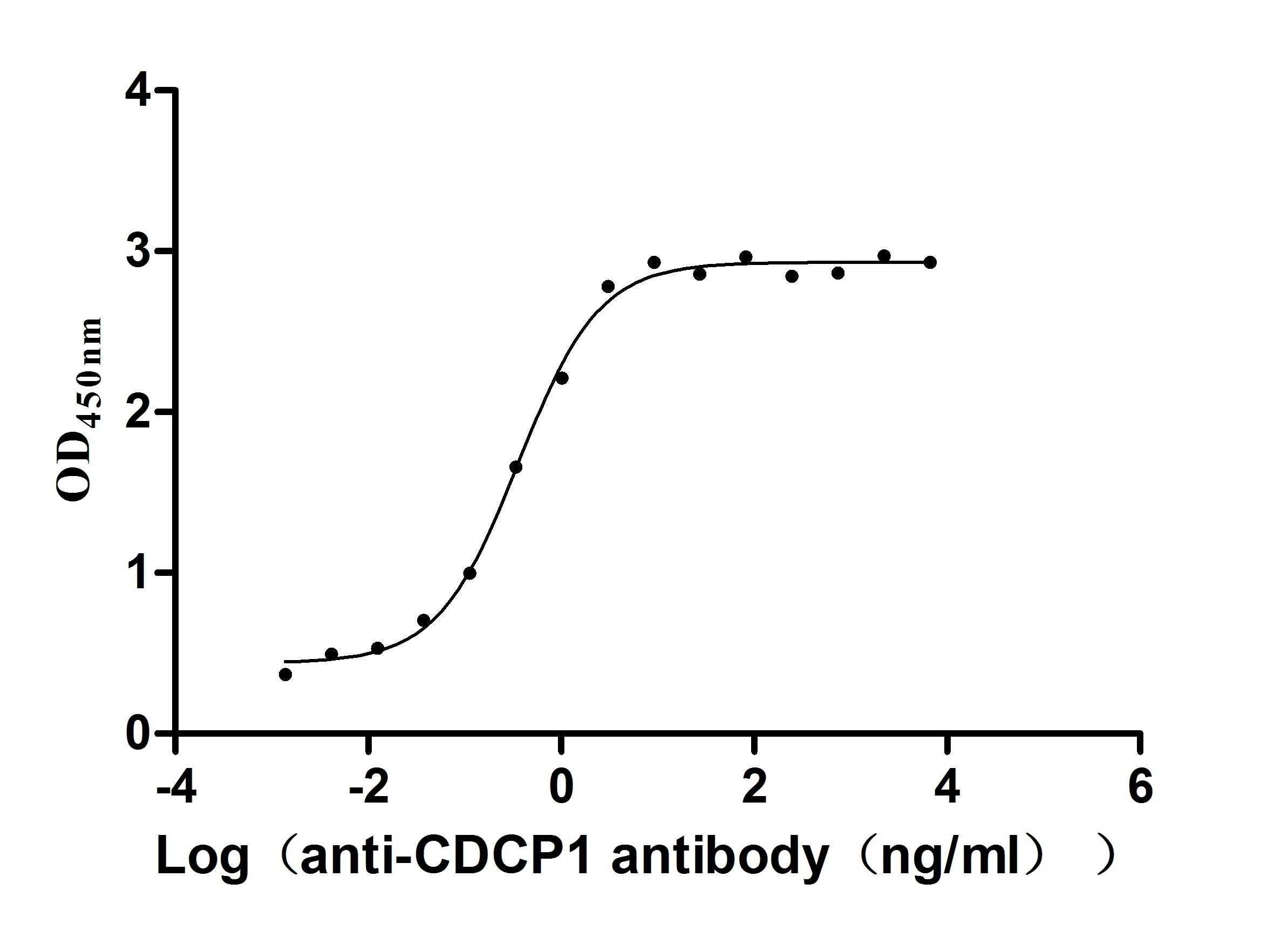Recombinant Mouse C-C chemokine receptor type 11 (Ccrl1), partial
-
货号:CSB-YP835667MO1
-
规格:
-
来源:Yeast
-
其他:
-
货号:CSB-EP835667MO1
-
规格:
-
来源:E.coli
-
其他:
-
货号:CSB-EP835667MO1-B
-
规格:
-
来源:E.coli
-
共轭:Avi-tag Biotinylated
E. coli biotin ligase (BirA) is highly specific in covalently attaching biotin to the 15 amino acid AviTag peptide. This recombinant protein was biotinylated in vivo by AviTag-BirA technology, which method is BriA catalyzes amide linkage between the biotin and the specific lysine of the AviTag.
-
其他:
-
货号:CSB-BP835667MO1
-
规格:
-
来源:Baculovirus
-
其他:
-
货号:CSB-MP835667MO1
-
规格:
-
来源:Mammalian cell
-
其他:
产品详情
-
纯度:>85% (SDS-PAGE)
-
基因名:
-
Uniprot No.:
-
别名:Ackr4; Ccr11; Ccrl1; Atypical chemokine receptor 4; C-C chemokine receptor type 11; C-C CKR-11; CC-CKR-11; CCR-11; CC chemokine receptor-like 1; CCRL1; CCX CKR
-
种属:Mus musculus (Mouse)
-
蛋白长度:Partial
-
蛋白标签:Tag type will be determined during the manufacturing process.
The tag type will be determined during production process. If you have specified tag type, please tell us and we will develop the specified tag preferentially. -
产品提供形式:Lyophilized powder
Note: We will preferentially ship the format that we have in stock, however, if you have any special requirement for the format, please remark your requirement when placing the order, we will prepare according to your demand. -
复溶:We recommend that this vial be briefly centrifuged prior to opening to bring the contents to the bottom. Please reconstitute protein in deionized sterile water to a concentration of 0.1-1.0 mg/mL.We recommend to add 5-50% of glycerol (final concentration) and aliquot for long-term storage at -20℃/-80℃. Our default final concentration of glycerol is 50%. Customers could use it as reference.
-
储存条件:Store at -20°C/-80°C upon receipt, aliquoting is necessary for mutiple use. Avoid repeated freeze-thaw cycles.
-
保质期:The shelf life is related to many factors, storage state, buffer ingredients, storage temperature and the stability of the protein itself.
Generally, the shelf life of liquid form is 6 months at -20°C/-80°C. The shelf life of lyophilized form is 12 months at -20°C/-80°C. -
货期:Delivery time may differ from different purchasing way or location, please kindly consult your local distributors for specific delivery time.Note: All of our proteins are default shipped with normal blue ice packs, if you request to ship with dry ice, please communicate with us in advance and extra fees will be charged.
-
注意事项:Repeated freezing and thawing is not recommended. Store working aliquots at 4°C for up to one week.
-
Datasheet :Please contact us to get it.
相关产品
靶点详情
-
功能:Atypical chemokine receptor that controls chemokine levels and localization via high-affinity chemokine binding that is uncoupled from classic ligand-driven signal transduction cascades, resulting instead in chemokine sequestration, degradation, or transcytosis. Also known as interceptor (internalizing receptor) or chemokine-scavenging receptor or chemokine decoy receptor. Acts as a receptor for chemokines CCL2, CCL8, CCL13, CCL19, CCL21 and CCL25. Chemokine-binding does not activate G-protein-mediated signal transduction but instead induces beta-arrestin recruitment, leading to ligand internalization. Plays an important role in controlling the migration of immune and cancer cells that express chemokine receptors CCR7 and CCR9, by reducing the availability of CCL19, CCL21, and CCL25 through internalization. Negatively regulates CXCR3-induced chemotaxis. Regulates T-cell development in the thymus and inhibits spontaneous autoimmunity.
-
基因功能参考文献:
- a comprehensive model of CCL19 and CCL21 transport and gradient formation in the lymph nodes (LNs) was built; predicts that ACKR4 in LNs prevents CCL19/CCL21 accumulation in efferent lymph, but does not control intranodal gradients; instead, it attributes the disrupted interfollicular CCL21 gradients observed in Ackr4-deficient LNs to ACKR4 loss upstream PMID: 28807994
- ACKR4 on stromal cells aids the egress of antigen presenting cells from mouse skin, and, during inflammation, facilitates CCR7-dependent cell trafficking by scavenging CCL19. PMID: 26976955
- The data shows a novel function for the chemokine receptor CCX-CKR as a regulator of TGF-beta1 expression and epithelial-mesenchymal transition in breast cancer cells. PMID: 25027038
- CCRL1 is expressed in key thymic microenvironments but is dispensable for T lymphopoiesis at steady state in adult mice. PMID: 25521433
- stepwise acquisition of chemokine (C-C motif) receptor-like 1 (CCRL1) is a late determinant of cortical thymic epithelial cell differentiation PMID: 25070355
- found that lymph node fringes indeed contained physiological gradients of the chemokine CCL21, which depended on the expression of CCRL1, the atypical receptor for the CCR7 ligands CCL19 and CCL21 PMID: 24813163
- CCX-CKR deletion increases incidence of a spontaneous Sjogren's syndrome-like pathology, suggestive of a defect in self-tolerance. CCX-CKR(-/-) mice have fewer thymic epithelial cells per thymocyte, with defects in thymocyte distribution & frequency. PMID: 23152546
- CCX-CKR(-/-) have a 5-fold increase in the level of CCL21 protein in blood, and 2- to 3-fold increases in CCL19 and CCL21 in peripheral lymph nodes. PMID: 20562329
- Characterization of mouse CCX-CKR, a receptor for the lymphocyte-attracting chemokines TECK/mCCL25, SLC/mCCL21 and MIP-3beta/mCCL19: comparison to human CCX-CKR. (CCX-CKR) PMID: 11981810
- These observations indicate that the silent chemokine receptor CCX-CKR1, regulates homeostatic leukocyte migration by controlling the availability of chemokines in the extracellular space. PMID: 17485674
显示更多
收起更多
-
亚细胞定位:Early endosome. Recycling endosome. Cell membrane; Multi-pass membrane protein.
-
蛋白家族:G-protein coupled receptor 1 family, Atypical chemokine receptor subfamily
-
组织特异性:Expressed in lung, heart, spleen, skeletal muscle, testis, astrocytes and microglia. Expressed by cortical thymic epithelial cells.
-
数据库链接:
KEGG: mmu:252837
STRING: 10090.ENSMUSP00000075507
UniGene: Mm.269254
Most popular with customers
-
Recombinant Human Tyrosine-protein kinase Mer (MERTK), partial (Active)
Express system: Mammalian cell
Species: Homo sapiens (Human)
-
Recombinant Human Intestinal-type alkaline phosphatase (ALPI) (Active)
Express system: Mammalian cell
Species: Homo sapiens (Human)
-
Recombinant Human Zymogen granule protein 16 homolog B (ZG16B) (Active)
Express system: Mammalian cell
Species: Homo sapiens (Human)
-
Recombinant Human Tumor-associated calcium signal transducer 2 (TACSTD2), partial (Active)
Express system: Mammalian cell
Species: Homo sapiens (Human)
-
Recombinant Human Tumor-associated calcium signal transducer 2 (TACSTD2), partial (Active)
Express system: Mammalian cell
Species: Homo sapiens (Human)
-
Recombinant Human Desmoglein-2 (DSG2), partial (Active)
Express system: Mammalian cell
Species: Homo sapiens (Human)
-
Recombinant Human Interleukin-2 receptor subunit alpha (IL2RA), partial (Active)
Express system: Mammalian cell
Species: Homo sapiens (Human)
-
Recombinant Human CUB domain-containing protein 1 (CDCP1), partial (Active)
Express system: Mammalian cell
Species: Homo sapiens (Human)


